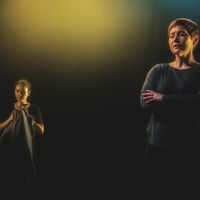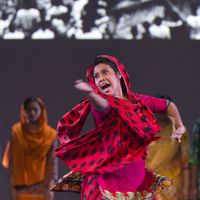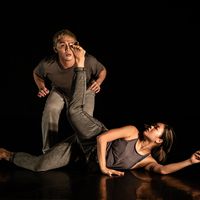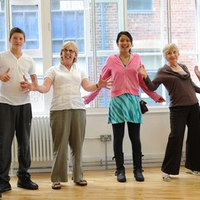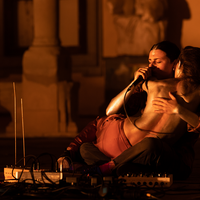Compagnia Zappalà Danza at M1 Contact Festival | Interview
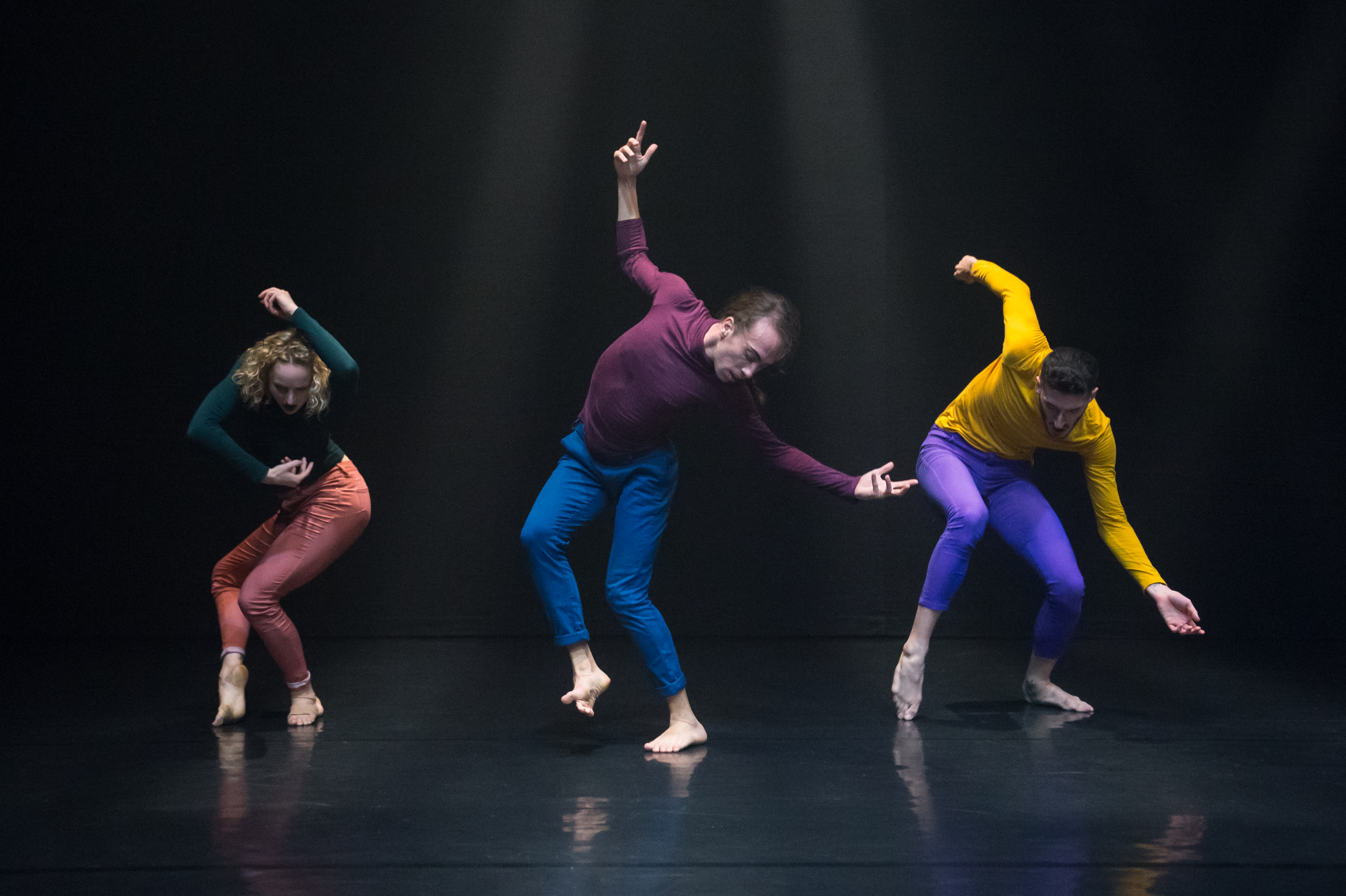
As part of our media partnership with M1 Contact Contemporary Dance Festival, we have interviewed the Italian dance company Compagnia Zappalà Danza to know more about MoDem, the choreographic language developed by Roberto Zappalà as well as their philosophy and inspiration.
1. Tell us a bit more about Compagnia Zappalà Danza: What is at the core of your work and what do you aspire to?
The company's work is based on 2 aspects: one is closely linked to a specific language matured in 30 years of activity by the company and his founder and choreographer Roberto Zappalà. It is a language we called MoDem (acronym of Democratic Movement). We believe it is important that a choreographer in addition to giving a message in the sphere of contemporaneity must also transfer the depth of the movement. So it was necessary to codify some aspects of our dance, which is what we did with MoDem.
The other aspect is linked to the fact that most of Roberto Zappalà’s works are linked to social and current affairs, as demonstrated by the many projects carried out so far. For example, with 'Remapping Sicily', we looked at how our land Sicily addressed issues such as religion, mafia, or even cultural behaviors, colours, and moods. The current work 'Transiti humanitatis' links to the behaviour of the body in the context of humanity, where the body is the main tool and where to be enhanced are the suggestions that are created. The interest is not to talk about something specific, but to create suggestions. All this, however, without neglecting the aesthetic aspect, which Roberto is very fond of. He has in fact made Charles Baudelaire's phrase his own: "Glorifying the cult of image and aesthetics is my goal, even more than its meaning".
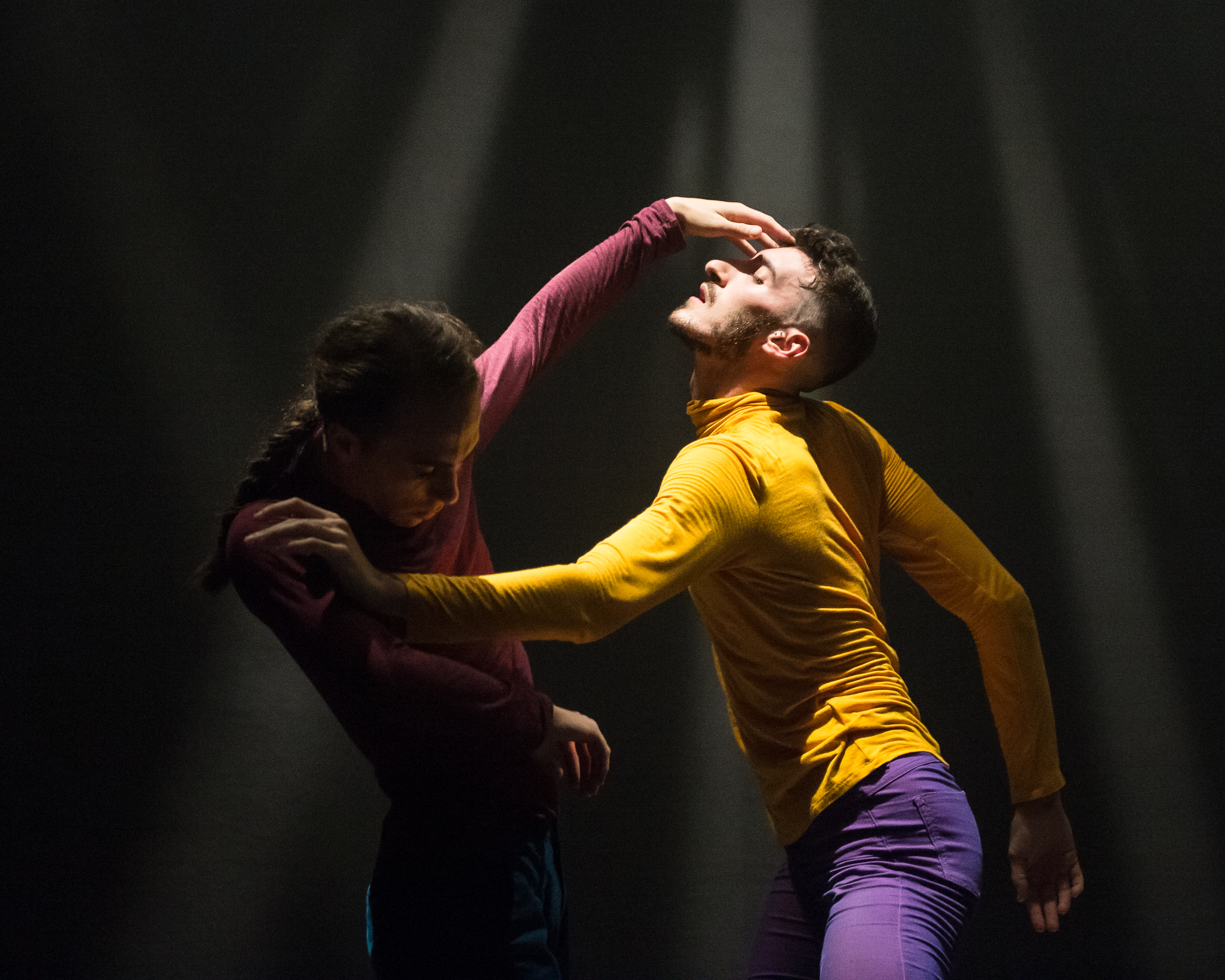
Roberto Zappalà aspires to allow the audience to enjoy the poetics of the gesture. At the same time, he gives a voice to his heart and his sensitivity with poetry, and express it authentically.
2. What inspired you to collaborate with M1 Contact Contemporary Dance Festival? What are you hoping to learn through this exchange?
The distance has a great impact on the difference in behaviour and life philosophy, habits, feelings, and sensations. So when you collaborate between organisations geographically distant, somehow this distance is reflected in the work. It is always very fascinating to develop these collaborations. It increases knowledge, even for those of us who have a lot of experience and have traveled many roads. It is therefore an open exchange, which we hope will continue beyond this festival, because we cannot exhaust ourselves in the first approach, like all the feelings that grow and die over time. Moreover, with the T.H.E Dance Company who is producing the festival, there is a harmony in the use of the body. Both companies put attention to the physical aspects which are very accentuated, although there are also collateral messages.
3. Tell us more about your choreographic language MoDem. How will you introduce it to context of Singapore and Asia?
As mentioned above, MoDem is a language that arises over time and we have been working in this direction for 20 years with the dancers, some of whom are involved in its spreading. It is a language where with the acronym - Democratic Movement - we underline how it is it is imperfect like all democracies and in each instance the final result depends of the choreographer. There is democracy in the use of language as in choreography, so the language of individual dancers becomes very special, authentic. Concerning the study, everything is based on some keywords such as instinct and humility, but also on exegesis, a maniacal study of the joints of the body, so as to arrive to a deep knowledge of the body. In the context of Asia, we do not believe there will be a difference in the approach, MoDem is based on a universal language, there are attitudes that dancers have beyond their geographical origins.
4. In the context of Italy, dance is often associated to classical and traditional forms. What are the challenges you have faced in setting up and running a contemporary dance company? Was the fact that you were based in Sicily, more on the periphery of the big cultural centers a challenge or perhaps an opportunity for a more unconventional approach?
In the Italian context dance is not always associated with the classical form, it is especially so in those cities where there are opera houses such as La Scala that somehow have imposed a language that is neoclassical. In the rest of the country, there is a great ferment of contemporary authors. However, it is a country with very different geographical characteristics, and this is reflected in a diversity of languages and taste. Italy is very different in landscape, in food and in climate and therefore also in art there are great differences between North and South. We have made the choice to develop it in the south of Italy where the language is more bodily and ancestral, compared to how it could be if it was born in other cities such as Florence or Turin, where even the stage setting is different, perhaps more aristocratic.
The choice to stay in Sicily was given by our choreographer’s instinct and intuition. Roberto knew it would be challenging, but he also wanted to create in the solitude of a place where contemporary dance was not yet known and the audience for it was not yet developed. This allowed us to create a language that is authentic, personal, without reference to others.
5. The foreseeable future will most probably have to rely on reduced cultural mobility and face to face exchanges. How will you overcome these limitations in your practice?
It is not easy to predict what the times will bring, and it is not even our mission, nor do we think constantly about it. We only try to plan in relation to our economic possibilities, considering financial but also artistic challenges. One thing is certain, we do not have an interest in carrying out an activity that is exclusively digital. It does not fascinate us, and we do not want to give up the physical interaction with the audience. But we are confident that sooner or later everything will return to normality and then the audience will have even more desire to observe and take part in our work.
6. Is there a new role to play for Compagnia Zappalà Danza in the new normal post-Covid19 world?
We do not believe there will be a new role, we will adapt our language to what the new measures will be. We will certainly not turn to new languages such as virtual language, which does not suit our work. We are waiting for everything to go back to the previous mechanisms, in the hope of being able to continue shaping the poetry of our choreographer together with our audience.
Compagnia Zappala' will conduct an online workshop on MoDem language on 13 June 2020.
For more information: https://the-contact.org/classes-workshops-2/
Copyright photos: Serena Nicoletti

